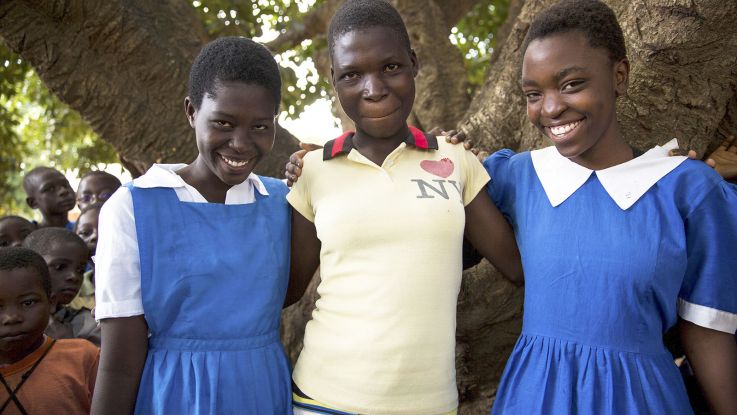Menstrual Hygiene Day
This Menstrual Hygiene Day, share a better period
Many of us know what it’s like to lend a tampon or a pad to someone - anyone - who needs one.
It doesn’t matter if it’s your sister, a friend, or a complete stranger in the loo. It’s an unwritten rule that we always help out in an emergency, if we can.
What about a woman living in a refugee camp, who has had to flee her home with nothing? Would you help her out too, if you could?
Around the world, thousands of women, girls and people who menstruate live without access to the safe sanitary products they need.
So this Menstrual Hygiene Day, please help us to end period poverty, and share a better period with someone who needs it.
Periods and humanitarian disasters
Women who have lost everything as a result of humanitarian crises tell us that amongst the essential items they need most are sanitary pads, wipes and soap.
Without menstrual products, women, girls and people who menstruate are forced to use improvised materials to manage their periods, including torn pieces of clothing and rags, which can cause infections.
In humanitarian emergencies, ActionAid provides essentials kits which can include soap, menstrual products and clean underwear, helping people manage their periods safely, and with dignity.

Supporting refugees with menstrual products
13-year-old Wesal's mother was killed in an airstrike on their home in Syria. Her father and grandmother tried to take Wesal and her sisters to Jordan – but at the border her father was arrested and taken back to Syria.
Now, Wesal and her three sisters are being brought up by their grandmother, Azziza, in Jordan. Without their mum and dad, the family are struggling to get by.
Wesal started her period last year when she was 12. Now, Azziza has to face the agonising choice of whether to buy food or menstrual products for her granddaughters when they have their periods.
Wesal can't afford to buy sanitary towels when she has her period.
Sharron Lovell/ActionAid
Sanitary pads changing lives in Malawi
In Malawi, ActionAid is providing training for communities in how to make reusable, low-cost sanitary pads. These simple sanitary pads are changing lives.
Before, girls who couldn't afford sanitary pads often felt unable to go to school because they were teased by boys if their clothes became stained.
Now, not only are girls able to stay in school, but their others in the community are building long-term businesses by selling their extra pads at the market. This provides women with opportunities to earn an income and support their families.

Ruth received a sewing machine and training on how to use it from ActionAid. She now makes cheap, reusable sanitary towels.
Samantha Reinders/ActionAid
Sewing reusable sanitary pads
Ruth, from Malawi, is a mother of two who makes reusable sanitary pads for girls in Namalusa village, Malawi.
ActionAid provided the sewing machine, and training on how to use it, to her and other women in the community who were struggling to make ends meet. So far, the women taking part in this project have made 3,000 pads, to be distributed to 600 girls.
"I think the program is good," Ruth says.
I’ve benefitted from it, and others are benefitting from it,"
One of the girls who has received pads came to her to thank her and say that she was doing better at school because of the pads.
Ruth said: "I felt good in my heart, because I never expected I’d be able to make such a difference."
Page updated 1 August 2024






